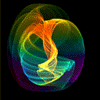How accurate are diagnoses of stages of insight? - Discussion
How accurate are diagnoses of stages of insight?
Paul Bradford, modified 10 Years ago at 12/22/13 4:02 AM
Created 10 Years ago at 12/22/13 4:02 AM
How accurate are diagnoses of stages of insight?
Posts: 10 Join Date: 1/2/13 Recent Posts
(I debated posting this in Dharma Battleground vs. here)
First of all thanks to Daniel Ingram for writing his book, as without it I'm not sure I ever would have become a Buddhist.
That said, I don't see how the map of stages of insight can be accurately used by someone who has not already experienced a full cycle. I think most people who are depressed and read about the stages of insight will come to identify with the Dark Night stages. This is because MCTB says people can go through A&P without having any out-of-the-ordinary experience that they remember later. A depressed person will read this and believe they already experienced A&P without noticing it. If someone asks for a diagnosis here how can you decide whether they're a depressed person pre-A&P or a Dark Night yogi?
Personally I've experienced moderate depression for a long time, interspersed with periods weeks on end where I wasn't depressed at all. When I read MCTB in January 2013 I diagnosed myself as going through A&P and being in Dark Night. That was because a few years ago, in 2010, I read a book by Eckhart Tolle and shortly after reading it everything in the world became more beautiful and vivid to me, like I was seeing things in a new way, so I decided that was my A&P experience. And it's true that shortly after this experience I had Dark Night symptoms. But I also had depression before this experience. And as far as meditation goes, I started a meditation practice in January 2013 after reading MCTB. I've had some sits where I felt bad going in and they brought me intense joy. I've also had some sits where I felt good going in and ended up quitting mid-sit feeling terrible.
My point is I don't see how a diagnosis can reliably be made. I hope someone would like to disagree with me.
First of all thanks to Daniel Ingram for writing his book, as without it I'm not sure I ever would have become a Buddhist.
That said, I don't see how the map of stages of insight can be accurately used by someone who has not already experienced a full cycle. I think most people who are depressed and read about the stages of insight will come to identify with the Dark Night stages. This is because MCTB says people can go through A&P without having any out-of-the-ordinary experience that they remember later. A depressed person will read this and believe they already experienced A&P without noticing it. If someone asks for a diagnosis here how can you decide whether they're a depressed person pre-A&P or a Dark Night yogi?
Personally I've experienced moderate depression for a long time, interspersed with periods weeks on end where I wasn't depressed at all. When I read MCTB in January 2013 I diagnosed myself as going through A&P and being in Dark Night. That was because a few years ago, in 2010, I read a book by Eckhart Tolle and shortly after reading it everything in the world became more beautiful and vivid to me, like I was seeing things in a new way, so I decided that was my A&P experience. And it's true that shortly after this experience I had Dark Night symptoms. But I also had depression before this experience. And as far as meditation goes, I started a meditation practice in January 2013 after reading MCTB. I've had some sits where I felt bad going in and they brought me intense joy. I've also had some sits where I felt good going in and ended up quitting mid-sit feeling terrible.
My point is I don't see how a diagnosis can reliably be made. I hope someone would like to disagree with me.

Sweet Nothing, modified 10 Years ago at 12/22/13 4:53 AM
Created 10 Years ago at 12/22/13 4:53 AM
RE: How accurate are diagnoses of stages of insight?
Posts: 164 Join Date: 4/21/13 Recent Posts
Hey Paul.
I agree entirely.
The stages of insight are very tricky and it is common to misdiagnose oneself.
Even in an average, ordinary, non spiritual life, it is very common to have alternating phases of pleasure and pain, joy and sorrow, depression and delight, and so on. Even when someone is in a romantic relationship with someone they love very much, they can reach heights of happiness they have not known before and then inevitably come crashing down when things start falling apart.
Sometimes watching a film or hearing a song that one can deeply connect to also gives one an impression that it was life altering and so on. Reading a book often does this to people. In my opinion, every single experience contributes to the overall experiential qualities of life in some ways.
In my experience, the actual Dark Night is not a "Depression" so to say, but a phase where the rug is pulled from under your feet. Every single thing that you held onto in your world simply loses its sway over you and this can indeed be depressing. Everything becomes purposeless and meaningless. So meaningless that even the best sensual pleasures you've engaged in before dont appeal to you anymore, and you simply drop them like a snake sheds it's old skin.
I did not even know I was in DN until I was in Re-Observation and I read about it.
In my opinion, the best way to know for sure is that you have to necessarily pass through A&P (which for me was extremely intense and lasting, something impossible to miss), followed by Dissolution (every fabric of my body dissolved into vibrations and the solidity hasn't been felt again). Also during DN, you go through different cycles of the Dukkha nanas in sequence, and this is very easy to relate to if you're going through it.
Metta,
SN
I agree entirely.
The stages of insight are very tricky and it is common to misdiagnose oneself.
Even in an average, ordinary, non spiritual life, it is very common to have alternating phases of pleasure and pain, joy and sorrow, depression and delight, and so on. Even when someone is in a romantic relationship with someone they love very much, they can reach heights of happiness they have not known before and then inevitably come crashing down when things start falling apart.
Sometimes watching a film or hearing a song that one can deeply connect to also gives one an impression that it was life altering and so on. Reading a book often does this to people. In my opinion, every single experience contributes to the overall experiential qualities of life in some ways.
In my experience, the actual Dark Night is not a "Depression" so to say, but a phase where the rug is pulled from under your feet. Every single thing that you held onto in your world simply loses its sway over you and this can indeed be depressing. Everything becomes purposeless and meaningless. So meaningless that even the best sensual pleasures you've engaged in before dont appeal to you anymore, and you simply drop them like a snake sheds it's old skin.
I did not even know I was in DN until I was in Re-Observation and I read about it.
In my opinion, the best way to know for sure is that you have to necessarily pass through A&P (which for me was extremely intense and lasting, something impossible to miss), followed by Dissolution (every fabric of my body dissolved into vibrations and the solidity hasn't been felt again). Also during DN, you go through different cycles of the Dukkha nanas in sequence, and this is very easy to relate to if you're going through it.
Metta,
SN
Corinne Carter, modified 10 Years ago at 1/19/14 10:19 AM
Created 10 Years ago at 1/19/14 10:19 AM
RE: How accurate are diagnoses of stages of insight?
Posts: 7 Join Date: 1/17/14 Recent Posts
I've also experienced both "regular" depression and dark nights, and they can be difficult to disentangle. Likewise DN and "regular" anxiety. In my experience, DN differs by seeming much more random and confusing, with different physical and mental sensations all going on at once, and not necessarily related to any life events other than a conscious or unconscious questioning of fundamental assumptions about Life, the Universe, and Everything. It's like what people go through in the more difficult stages of converting from one religion to another (or from religion to a secular worldview or vice- versa). I believe the term was originally from Christian mysticism, where it means "separation from God".
Based on my own experience and others' descriptions, the DN is a very "your mileage may vary" phenomenon, with different symptoms experienced at different levels of intensity by different people in different circumstances. It wasn't helpful for me to get hung up on figuring out exactly what was going on rationally or what stage I was in or anything like that. It was much more helpful to just experience, accept, take in all the sensations, emotions, and thoughts, noticing how they change and shift over time. (More impermanence!) Of course things never stop changing completely, but eventually some sort of new equilibrium is reached. Sucks in the meantime, though.
Based on my own experience and others' descriptions, the DN is a very "your mileage may vary" phenomenon, with different symptoms experienced at different levels of intensity by different people in different circumstances. It wasn't helpful for me to get hung up on figuring out exactly what was going on rationally or what stage I was in or anything like that. It was much more helpful to just experience, accept, take in all the sensations, emotions, and thoughts, noticing how they change and shift over time. (More impermanence!) Of course things never stop changing completely, but eventually some sort of new equilibrium is reached. Sucks in the meantime, though.

Dream Walker, modified 10 Years ago at 1/19/14 12:49 PM
Created 10 Years ago at 1/19/14 12:49 PM
RE: How accurate are diagnoses of stages of insight?
Posts: 1709 Join Date: 1/18/12 Recent PostsPaul Bradford:
My point is I don't see how a diagnosis can reliably be made.
By paying attention.....something that is rarely done. Have you ever driven down your street, after years of living there and notice something "new" that isn't? Only by paying attention to your states and moving thru them are you going to notice them reliably. Most likely you will not notice the signs the first time unless you have a vigilant teacher who can point it out. Information shared here on the forum almost never has enough of the needed information to diagnose accurately....that is usually a conversation on skype or something.
Of course if you
1) have a good map
2) have studied it well
3) are paying attention
4) keeping notes about your practice as it happens
5) getting good feedback from someone knowledgeable
I think accuracy would be much higher then say... someone who read the map once, didn't study it very well, was not paying attention at the time, is relying on memory about their experiences, getting unqualified feedback from someone unknowledgeable over a forum. Varying degrees of accuracy based on many factors.
Of course sometimes the stages are not subtle and someone who has had abject fear, misery to their bones followed by disgust wonder how anyone could miss it? People who have subtle cushion only experiences have a harder time diagnosing....lucky for them.





